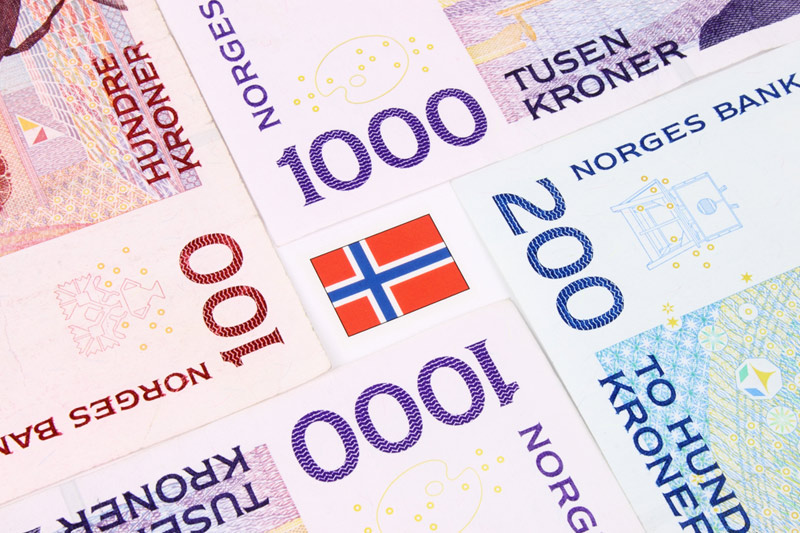(Bloomberg) --
Norway’s central bank said it is ready to intervene after the bottom seemed to fall out of the krone market.
“In recent days, there has been an extraordinary situation in the market for Norwegian kroner and movements in the exchange rate have been historically large,” the central bank said on Thursday. “Against this background Norges Bank is continuously considering whether there is a need to intervene in the market by purchasing Norwegian kroner.”
With a slump in the price of oil pummeling western Europe’s biggest crude exporter, and liquidity getting sucked out of small markets, Norway’s currency appeared to have no buyers.
The krone sank as much as 7% against the euro, after slumping up to 12% in the previous session. Against the dollar, it plunged 7.5%, following declines as deep as 14% on Wednesday.
The fury of the sell-off is unprecedented, according to currency strategists.
It’s “all about the oil collapse,” said Kristoffer Kjaer Lomholt, a senior analyst at Danske Bank in Copenhagen. What we’re witnessing now is a “potentially evil fire-sale loop related to the funding of foreign assets.”
Norwegian policy makers have been fighting a crisis on two fronts, as the fallout of the coronavirus brings the domestic economy to a standstill while the oil-price crash destroys its main export.
The central bank has responded to the meltdown by delivering an emergency half-point rate cut earlier this month and pumping extra liquidity into the economy. The government, which is backed by the world’s biggest sovereign wealth fund, has stepped up stimulus pledges and said it’s willing to do more.
Lomholt said he sees “a case building that more NOK weakness and volatility raises financial risks instead of cushioning the negative impact from COVID-19.”
The Norwegian currency’s future “is anyone’s guess now,” said Robin Winkler, a strategist at Deutsche Bank (DE:DBKGn). “It’s a broken market.”
Valentin Marinov, strategist at Credit Agricole (PA:CAGR) in London, wrote that “at the moment everyone is selling everything to get their hands on USD cash. The less liquid the asset, the greater the price impact of these flows.”
©2020 Bloomberg L.P.
